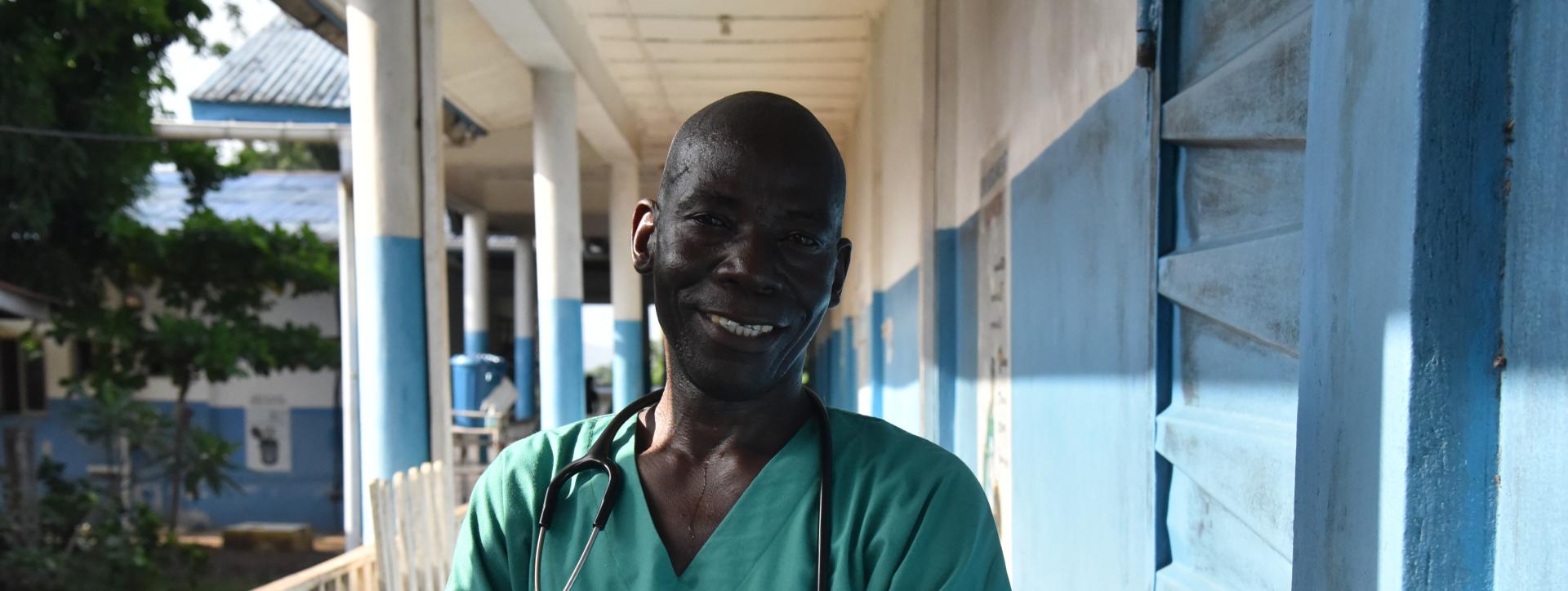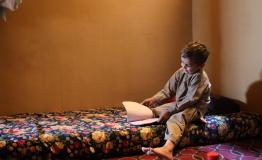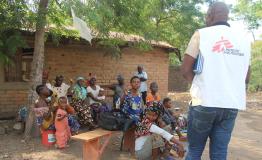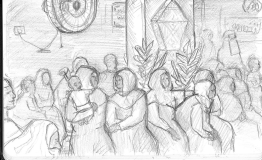Claude Ndoko is a community health officer in the paediatric intensive care unit at Magburaka government hospital in the Northern Province of Sierra Leone. The hospital is supported by Médecins Sans Frontières (MSF). Claude’s journey with MSF started 22 years ago.
What motivated you to start working with MSF?
What motivated me is the fact that patients are always the priority. As a medical student, I already knew that, but with Médecins Sans Frontières/Doctors Without Borders (MSF) , this was truly reinforced. In just a few months of working with Médecins Sans Frontières/Doctors Without Borders (MSF) , I felt at home and could say I had found a family.
I started working with Médecins Sans Frontières/Doctors Without Borders (MSF) in 2001 in Moyamba district, Southern Province of Sierra Leone, during the civil war (1991-2002). Although the armed conflict was still going on, the situation was already starting to be calmer, and we were all hoping for the end to arrive soon. I was born in Gbangbama village in Moyamba district, so I already knew about Médecins Sans Frontières/Doctors Without Borders (MSF) because they were working in my province. I had just graduated from nursing school, and I was eager to start working. Back then, Médecins Sans Frontières/Doctors Without Borders (MSF) was providing care to children, lactating mothers, and pregnant women in the Moyamba government hospital. I started working as a nurse and after a few months, I became the nursing team supervisor.
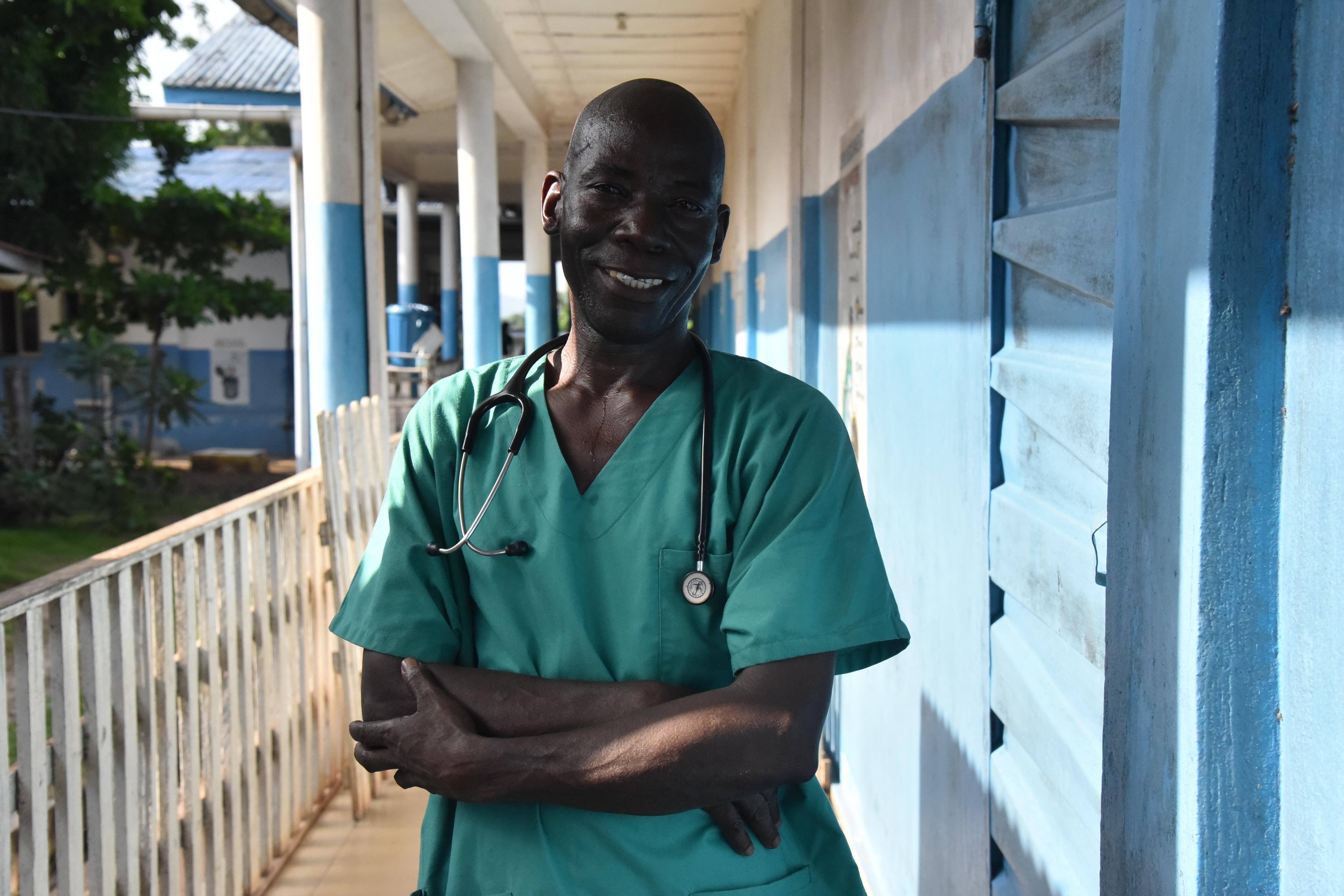
What has been the most rewarding part of your job?
In 2002, I moved to Tonkolili district where Médecins Sans Frontières/Doctors Without Borders (MSF) was supporting the Magburaka government hospital. I started working in a paediatrics ward for the first time and it was there I truly fell in love with my job. That experience gave me a new sense of purpose in my job. I am a father and when I take care of the children in the wards it’s always like I am taking care of my own children. I have treated a lot of children at the hospital. In fact, two of them are now nurses working with the Ministry of Health. I feel so proud when I see them.
In 2006, I went back to college to become a community health officer. I sold firewood and did some farming work to be able to pay the fees. After I graduated, I worked with the Ministry of Health on an immunization campaign, mainly on yellow fever, measles and polio in the Northern Province, in the town of Kabala. Then I moved to Bo, where Médecins Sans Frontières/Doctors Without Borders (MSF) was providing healthcare services to children under 15 years and pregnant woman at the Gondama referral centre. I worked as a clinic supervisor and later that same year as a data encoder.
I have treated a lot of children at the hospital. In fact, two of them are now nurses working with the Ministry of Health. I feel so proud when I see them.Claude Ndoko a community health office,Médecins Sans Frontières/Doctors Without Borders (MSF)
What were the most challenging moments during all these years?
Working with hemorrhagic fevers has been the most challenging aspect of my job during these years. In 2010, I worked with Médecins Sans Frontières/Doctors Without Borders (MSF) in a Lassa fever response in Bo district in the Southern Province. I was the only community health worker who agreed to work in the wards at the time. We were a very small team of one doctor, a few nurses and me. Most people were scared but I did it because I wanted to save lives. I am a former Lassa fever patient, and I have lost colleagues due to Lassa fever. I know what’s it like to be isolated and to not have proper care because people are scared to be near you.
With the 2014 Ebola outbreak in Sierra Leone, I moved from caring for patients with Lassa fever to patients with Ebola. Ebola was new to us. A lot of people were confused about what it was and where it came from. A blame game started because everyone was scrambling for answers. It took courage to work in the medical field during this time. A lot of organizations were in Sierra Leone to support with the response, including MSF. We had to play our own part as medical personnel to stop
the spread and treat patients. My mother would call me on the phone most days and ask me to not work during this time. She was scared she would lose her eldest son. I always told her “nya longoh ngie kpomiweh”, which means ‘I have to help’. She never understood why I did it but today she calls me a soldier.
Throughout all those years, wearing personal protective equipment every day was very challenging, especially during the dry season when the temperatures are scorching hot. Some days were simply unbearable, but we reminded each other that we also have to protect ourselves.
When Ebola was declared over in 2015, I return to my job at the Magburaka government hospital, again with MSF but this time in the pediatric intensive care unit.
What plans do you have for the future?
I will be retiring at the end of this year, and I will start gardening. I have truly enjoyed working with MSF all these years. MSF taught me to put humanity first with selflessness at its core. This is a lesson I will not forget, and I will also teach my children.
